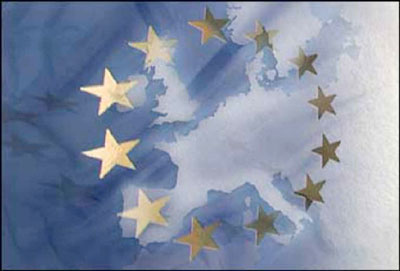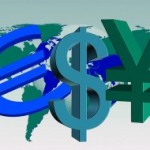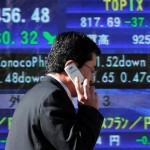5 Ways The Paris Attacks Could Hit Europe’s Economy

The consequences could be far-reaching–and not just negative.
It is, of course, far too early to do anything more than speculate. But common sense says that there must be consequences for business and for the European economy from the attacks in Paris that appear to have added a whole new dimension to the threat from Islamic State. The first-round impacts, such as a likely hit to tourism and consumer spending (think of all those Christmas markets that make such juicy soft targets) are the most obvious and likely to be the most short-lived. There was, after all, no discernible lasting economic impact from the attacks on the magazine Charlie Hebdo earlier this year. But there are obvious imponderables that could have huge, if indirect, impacts, most of them through the policy channel. Importantly, not all of them are negative.
1) Surveillance is likely to increase.
The European debate on surveillance is likely to lurch sharply in favor of snooping, as voters put more emphasis on security and less on concealing their secret gambling habits, infidelity and tax evasion. Attacks as sophisticated and coordinated as these require a lot of advance planning and communication, and it seems hardly credible that a large part of that would not have been electronic. It doesn’t necessarily follow that more surveillance will stop this kind of attack—France only recently passed a law with the most far-reaching snooping powers in Europe, and it doesn’t seem to have done much good—but the attacks are a big embarrassment for all those, notably Apple AAPL -2.90% CEO Tim Cook, who argue that the privacy of individuals’ communications is sacrosanct. The U.K. two weeks ago re-introduced a watered-down bill of its notorious “Snooper’s Charter”, which for the first time explicitly allows police to hack into computers, and collect large volumes of personal communications data. It also legally obliges telecoms and data companies to help police operations to bypass encryption. The bill now faces a much easier passage through parliament, and may even be beefed up again in reaction to the attacks.
2) Europe’s migrant policy is toast.
Nothing has been confirmed yet, but some evidence points to at least one of the attackers having gained entry into Europe at the Greek border, posing as a refugee. This is precisely what Europe’s right, in both its polite and coarser wings, has been warning about. The willingness to accept large volumes of hard-to-assimilate Muslim migrants, already lukewarm at best, will suffer badly from such revelations. Figures like Hungary’s Prime Minister Viktor Orban, or French National Front leader Marine Le Pen will feel vindicated and be emboldened in their anti-immigrant rhetoric. The European Commission’s plan to distribute 160,000 migrants across the continent by fixed quotas, already running into huge difficulties, is now dead in the water. More importantly, if the attacks deepen divisions over how to deal with migrant flows, then the risk of that issue paralyzing decisions on other economic matters increases.
3) The end of border-free Europe.
Getting rid of internal borders was one of the great achievements of the European Union. But the migrant crisis has seen one country after another reinstate border checks–first in the Balkans, where the sense of panic at being overrun by the arriving thousands has led to a proliferation of wire fences, but now in the ‘preferred destination’ countries of Sweden and Germany. If the so-called ‘Schengen’ border-free zone collapses, then that could hit both cross-border trade and the trucking business, as well as doing broader, but less tangible, damage to business confidence from seeing Europe unravel.
4) The end of Angela Merkel?
The Paris attacks are a double-whammy for the German Chancellor. She has been one of the biggest advocates of privacy over security (she was, after all, spied on by the NSA), and she took a huge political gamble with her “We’ll manage it” approach to absorbing a vast flow of largely Muslim migrants. For once in her political life, she staked her political capital on a big, brave show of leadership, and it looks more and more like a losing bet. Her poll ratings, which survived seven hugely unpopular Eurozone bailouts, have slumped. The Paris outrages are unlikely to finish her off, but they will embolden those who criticise her for complacency about the risks of Muslim immigration. There may be no immediate threat to the economy from her departure, but if she is replaced, it will likely be by someone (maybe Finance Minister Wolfgang Schaueble) who doesn’t share her qualms about ejecting fellow members of the Eurozone the next time they get into trouble.
5) Peace in Syria
It’s not all doom and gloom. The attacks risk overshadowing the outcome of today’s talks in Vienna, where the major powers agreed on a timeline for a transition to a new government in Syria. Agreeing to a political target is the key prerequisite for effective, coordinated military action against Islamic State (building on this week’s operations against ‘Jihadi John‘ and the retaking of Sinjar in northern Iraq by Kurdish militias. Peace in Syria would end the biggest geopolitical risk in the world today. It could also improve the chances of a settlement between Europe and Russia over the Ukraine conflict, another big drag on both sides’ economies.
Source: FORTUNE – 5 Ways The Paris Attacks Could Hit Europe’s Economy





























